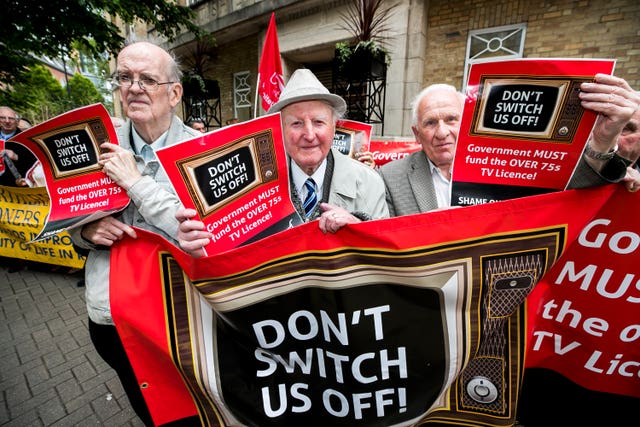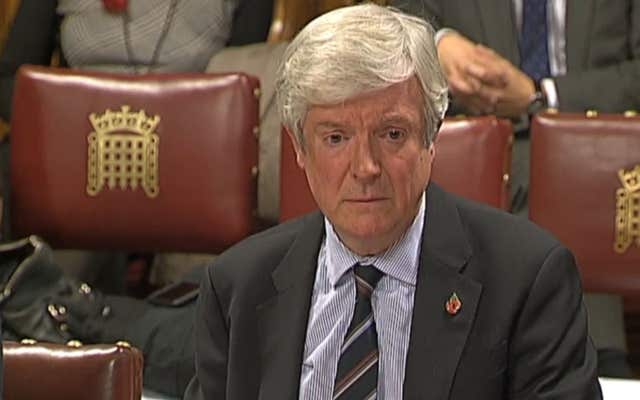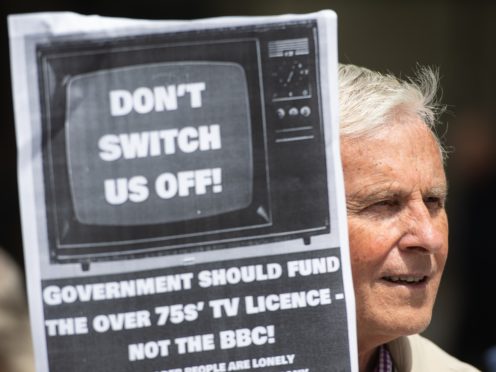Over-75s TV licences are a welfare issue and the Government should not have offloaded their cost to the BBC, peers have claimed.
Lords have criticised settlements between broadcasters and MPs “carried out in secret and which have tended to disadvantage the BBC”, and called for an independent body to settle the licence fee.
Universal free licences for over-75s were scrapped earlier this year with pensioners instead facing a means-tested system.
The House of Lords Communications and Digital Committee claims the financial burden should not have been imposed on the BBC, or accepted, and that it remains an issue of welfare policy which should not be part of future negotiations.

Peers fear that the licence fee could have been compromised by negotiations for the most recent BBC charter agreement, and a new body should set the charge, with a view to maintaining the BBC’s “soft power”.
A report published on Tuesday by the committee said: “We are concerned that the integrity of the licence fee has been undermined by a succession of settlements which were carried out in secret and which have tended to disadvantage the BBC.
“The decision on whether to provide free licences to the over-75s is a matter of welfare policy.
“The BBC should not have been asked to take on this decision, and the BBC should not have accepted it.
“Responsibility for licences for over-75s should be off the table in future licence fee negotiations.”
Peers have suggested a new BBC Funding Commission should be in place for future negotiations in 2021.
The committee has been hearing evidence on the impact of media rivals like Amazon and Netflix on British public service outlets, and their final report has called for more support for UK broadcasters in a newly competitive market.

Peers said the importance of the BBC to British global influence should mean it receives a better settlement in future charter negotiations.
Cost-cutting BBC bosses revealed in June that they could no longer maintain the expected £745 million burden of over-75s TV licences after the concession was handed over from Government. The move could mean up to 3.7 million pensioners in the UK would no longer receive a free licence.
There was widespread outrage at the decision to means-test the concession, with campaigners raising fears about the value of television to elderly people facing social isolation.
A BBC spokesman said: “We welcome this timely report which strongly supports the continuing and essential role of the BBC and other UK PSBs, and the central role of the licence fee in providing a vital source of finance for UK content production.
“We also agree with the committee on the need for a proper process and transparency around the next licence fee settlement, and for the BBC to be able to innovate speedily in a fast moving media market”.
Free TV licences were first paid for by a Labour government in 2000. Under the Conservatives in 2015, ministers announced an agreement had been reached between government and the BBC, and the broadcaster would shoulder the cost at what director-general Lord Tony Hall called “the height of austerity”.
A Government spokesman said: “The 2015 funding settlement was agreed with the BBC and approved by Parliament, and the then director general said it was ‘a strong deal for the BBC’ and provided ‘financial stability’.
“We will respond to the committee’s report in due course.”
Caroline Abrahams, charity director at Age UK, said: “We’re extremely pleased that this cross-party committee has concluded that responsibility for free TV licences for over-75s should stay where it has always belonged – with the Government, not the BBC.
“As we head towards a General Election, we call on all the political parties to do the right thing and pledge to keep these TV licences free into the future.”
